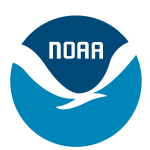- Industri: Government
- Number of terms: 30456
- Number of blossaries: 0
- Company Profile:
NOAA Coral Reef Conservation Program, National Oceanic and Atmospheric Administration, U.S. Department of Commerce
Biological techniques used in applied research research and product development. In particular, the use by industry of recombinant DNA, cell fusion, and new bioprocessing techniques; any technology that is applied to living organisms to make them more valuable to humans.
Industry:Natural environment
In taxonomy, each specimen of a type series from which neither a holotype nor a lectotype has been designated. The syntypes collectively constitute the name-bearing type.
Industry:Natural environment
One of two small cylindrical cell organelles composed of nine triplet microtubules. They form the asters during cell division.
Industry:Natural environment
Small number of species whose distributions and abundances are well known; used in conservation planning; assumed to reflect the distribution and abundance of the regional biota; subsumes indicators and umbrella species; also called "focal species".
Industry:Natural environment
The dispersal of plant seeds or spores within the body of an animal, as passing through the animal's digestive system; also called "endochory".
Industry:Natural environment
The place or environment where a particular organism, population, or species lives.
Industry:Natural environment
The term, "twilight zone" represents a transition from a region that receives sunlight during the daylight hours, to a region that remains in perpetual darkness. The coral-reef twilight zone is roughly defined as coral-reef habitat at depths between about 200 feet (60 meters) and 500 feet (150 meters). The upper limit represents the approximate maximum depth to which stony corals tend to dominate the reef structure, and the lower limit represents the maximum depth at which significant photosynthesis occurs (the maximum depth to which the living coral reef extends).
Industry:Natural environment
